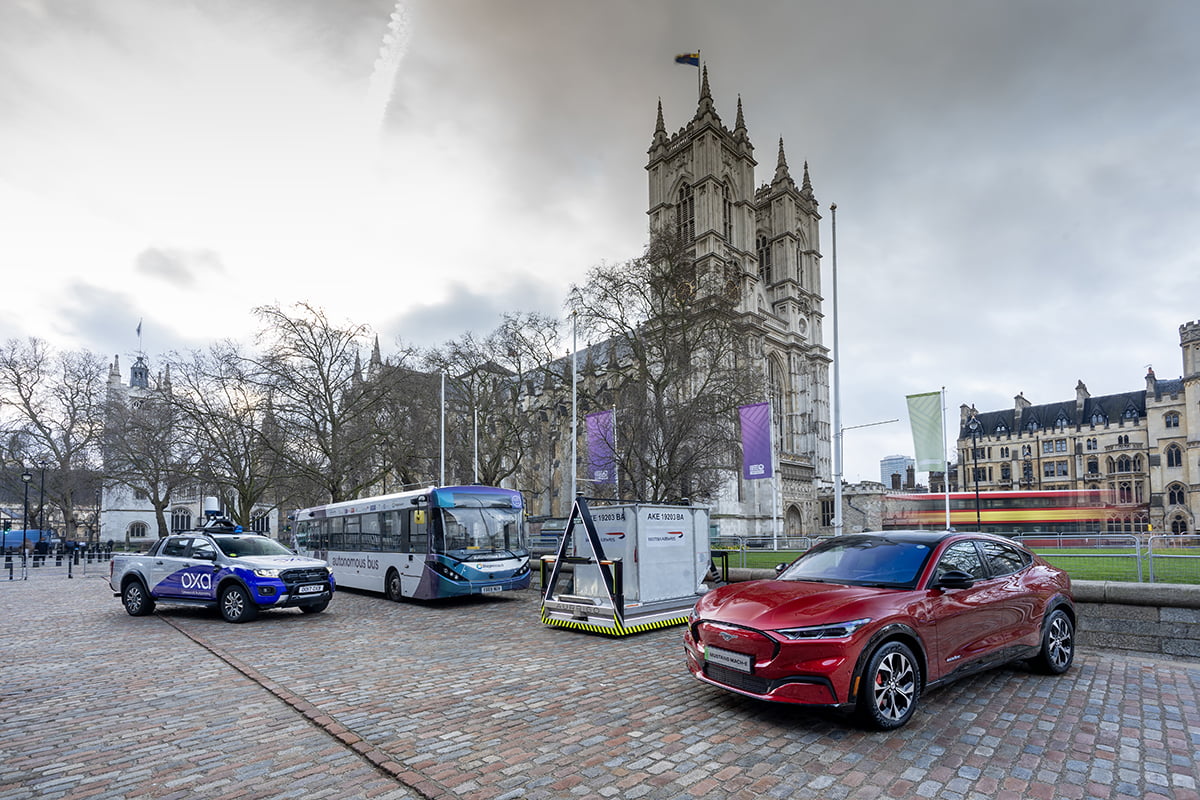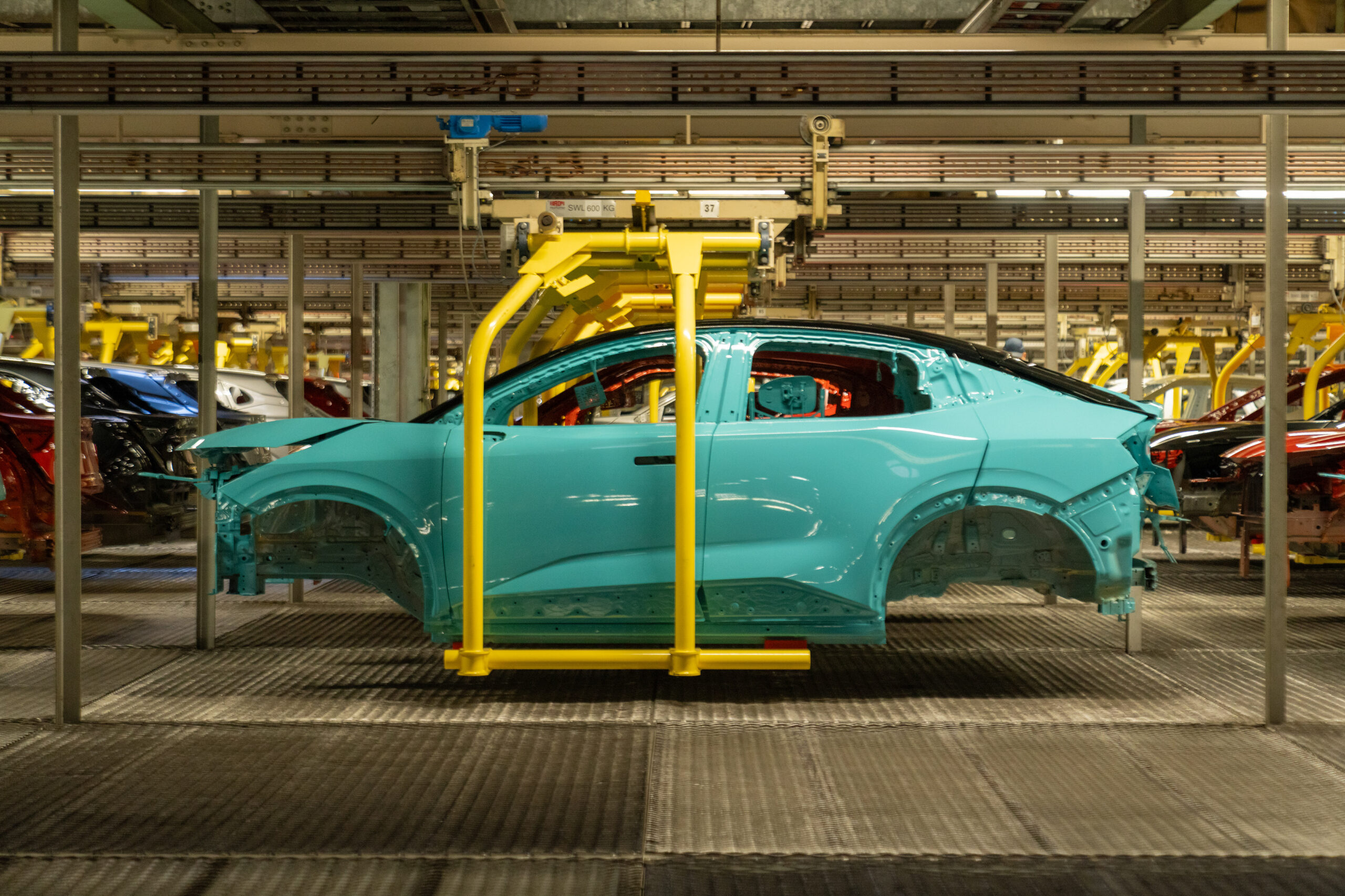
- SMMT, techUK, RoSPA, RoadSafe, RNIB and Motability Operations welcome government announcement to accelerate self-driving vehicle rollout.
- Technology could deliver £66 billion in economic benefit and 342,000 jobs by 2040.
- Potential to save 3,900 lives and avert 60,000 serious collisions over same period.
The government’s latest measures to ensure Britain remains a world leader in the development and introduction of self-driving vehicles have been welcomed by the two trade associations that represent companies developing the technology, road safety groups and organisations supporting people with disabilities. SMMT and techUK, along with RoSPA, RoadSafe, RNIB and Motability Operations, believe today’s announcement brings the country a step closer to realising the road safety and socio-economic benefits promised by self-driving technology.
Self-driving vehicles have the potential to deliver significant benefits to British society and the economy, delivering economic benefits as high as £66 billion and an estimated additional 342,000 jobs by 2040. The technology could also potentially save 3,900 lives and avert 60,000 serious collisions over the next 15 years, while offering a wider array of accessible mobility solutions to disabled and older people.1
The government’s plans to implement a regulatory framework that will enable organisations to pilot commercial self-driving services from next year will encourage technology developers and their partners to begin designing and implementing services that meet the needs of the British public, providing competitive advantages for British businesses. These transformational services, which are already available in some other countries, will widen public access to mobility solutions. This positive move positions the UK as a hotbed for cutting-edge mobility technology, elevating its position on the world stage as a destination of choice for automotive and AI investment.

Britain’s self-driving vehicle revolution moves one step closer, with today’s announcement putting the country on track to reap the road safety and socio-economic benefits this technology can deliver. Pilot rollout of commercial self-driving services from next year will widen public access to mobility, while the consultation will ensure the technology is deployed in a safe and responsible way. These latest measures will help Britain remain a leader in the development and introduction of self-driving vehicles.
Mike Hawes, SMMT Chief Executive

Today’s announcement is great news for the UK’s AV and tech sectors. The UK must make sure it doesn’t fall behind other countries despite the promising progress made in recent years to create new, bespoke legislation for AVs. The ability to deploy truly driverless passenger services from 2026 is a major milestone towards bringing the benefits of autonomy to communities across the country. techUK’s Self-Driving Vehicle Working Group looks forward to working closely with the government to make new passenger services a reality in the UK.
Julian David, techUK Chief Executive
Following the passing of the landmark Automated Vehicles Act last year, the consultation and call for evidence launched today will ensure the technology is deployed in a safe and responsible way, taking into account the safety, accessibility needs and welfare of all road users.

RoSPA welcomes the government’s announcement as an important step towards ensuring that people will be able to benefit from self-driving technology as safely as possible. RoSPA was formed over 100 years ago to inform the public about the dangers of motor vehicles, then a new and unfamiliar sight on our streets. While vehicle technology has made huge advances since, the core principle of robust regulation designed with public safety in mind remains essential to preventing road traffic collisions and fatalities.
Steve Cole, RoSPA Policy and Impact Director

Collision avoidance and advanced driver assistance systems have already proved to be vital in reducing casualties and technology has further potential to prevent crashes. Developing and demonstrating the next generation of connected safety technologies is an essential step in achieving a shared vision of roads without fatalities or serious injuries. This initiative forms an important step in accelerating the development, deployment and adoption of self-driving vehicles as part of a strategic approach to enabling safe, accessible mobility on our roads.
Arun Srinivasan, Chair of RoadSafe

RNIB welcomes the pilot scheme of autonomous vehicles. Blind and partially sighted people are already navigating increasingly automated streetscapes, not just as future passengers, but as pedestrians today. The true potential of autonomous vehicles will only be realised when they’re safe, accessible and intuitive for everyone, from the pavement to the passenger seat. RNIB urges industry and government to design inclusively from the outset, engage meaningfully with blind and partially sighted people, and build transport systems that work for all.
Matt Stringer, RNIB Chief Executive

Automated vehicles have the potential to be transformative. Implementing this technology on the UK’s roads could help our disabled customers be better connected to work, education, healthcare and wider society. We welcome this announcement, which is an important step in bringing automated vehicles a step closer, and we will work with the sector to ensure that when the time comes the transition to automated vehicles is smooth for our customers.
Andrew Miller, Chief Executive of Motability Operations
Notes to editors
1 Connected and Automated Mobility: The UK Economic and Market Opportunities


